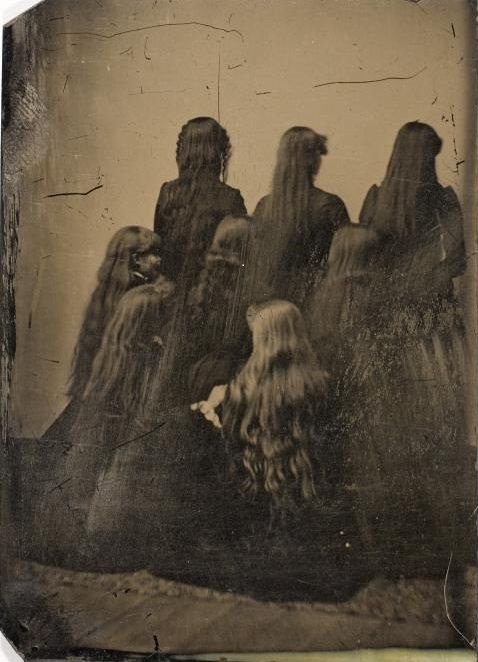Almost impossible to be creative
When happy (in love)
Why take time away
From obsessing over the beloved
Anyway?
The heat of lust
Flesh, fire-roasted
Concentration of flavor
Tasting the sweetness
Like Valentine candy hearts
(I heart U in pink dye)
But rage is hot, too
Yet scribbling, screaming
Hearts’ heat, when alone
Is different
So was it all the wasted passion
Wasted womanhood
That worked for women writers?
Is that how Austen, Dickinson
Resisted tearing out their hair
Tripping down Georgian/Victorian streets
Screaming, steaming, shouting:
Oh, for the touch of a man!
For the meeting of eyes
Concerns that arise
LUST + LIKE = LOVE
Did Emily Bronte’s rage write
One of the most sexually-soaked books
Of the nineteenth century?
And was her sister Anne
Lonely governess in Scarborough
Seeking solace from the
Passing of her clergryman
Pining? Resigned? Enraged?
What hidden facial expression
Passivity or aggression?
How did these women
Continue to live
Or
Conceivably
Is that why they died
So young?
© 2016 Clarissa Simmens (ViataMaja)
Image: 1880 Victorian hair, unidentified, Pinterest

It is said that “in the beginning” when people spread over the earth, “the sons of god” saw that the daughters of men were beautiful “and took any of them they chose.”
I think and suspect from my “wanderings” into the realm of dreams, visions and lucid dreams that many women throughout the ages continued to pine for the greatest lovers they ever knew: the sons of the gods. Men are a poor, if necessary substitute. Women also “remember” that the children they bore from the sons of the gods were the great heroes and rulers of mankind, the Nephilims or “giants” history calls them, though likely not in size, but in knowledge, strength and abilities, such abilities surfacing also in sexual unions; in love-making. Empathetic awakened women such as those you mention would feel this need, this loss, more than those buried in drudgery and societal constraints. In a long long ago past life, or perhaps in a different or parallel dimension, as a vision made clear to me I was both lover and daughter of the god Ra as he became known in later times. He has shown me amazing things I have done or will do (there is no actual chronological “order” in these visions) because of this relationship. Your poem just brought back these “memories” of different ways we have looked upon life and may understand its purpose.
LikeLiked by 2 people
So glad that the poem revived some “memories” for you. Interesting–what you say–in your comment because there is such a Yin and Yang for creative, aware women…
LikeLike
Beautiful poem. I have heard that Emily Bronte was dark, passionate, maybe even a bit kinky haha! Also I LOVE the picture!! Their hair! 🙂
LikeLiked by 1 person
Thanks, Christine. I’m waiting for the price of the Bronte book and the Dickinson book to go down and looking forward to reading something more honest about them. Yes, the hair! Love the picture. I used it on the basis of the line “what hidden facial expression..” It’s a stretch, but since I wanted to use that picture, thought it would be appropriate. 😀
LikeLiked by 1 person
Yes, I got that right away! I also love the antiquity of it, how it meshes with their eras.
LikeLiked by 1 person
Ah, thanks again, Christine! (every time I see that pic I wish I’d never cut my hair 🙂 )
LikeLike
Beautiful analysis and poetical portrait of skilled women who were forced to hide their writings in their secret bedrooms, scared by the constraits and prejudice of their time, but eager to make their thoughts, wishes and passions fly beyond those sheets of paper.
LikeLiked by 2 people
Oh, my dear friend Amalia, yes, you understand exactly! Thank you!
LikeLiked by 1 person